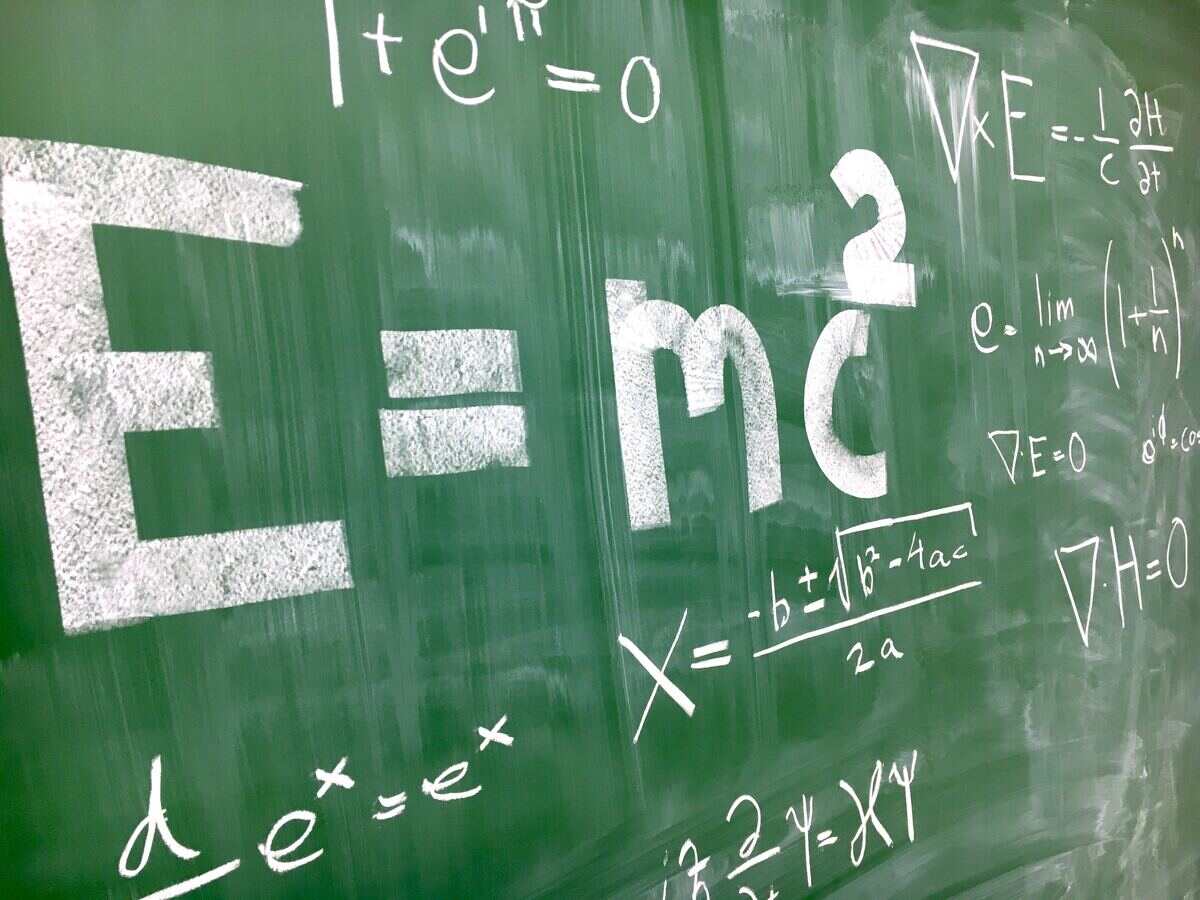In my years of experience as an IB writer, I’ve come to appreciate the nuances and depth of the Physics extended essay. It is an opportunity for IB students to showcase their knowledge and passion for this subject.
Today, I’d like to share my insights and help guide you on how to write a compelling and well-structured Physics extended essay.
Understanding the Physics Extended Essay Requirements
According to general IB criteria, this work has specific guidelines that students must adhere to, ensuring they remain within the Physics extended essay requirements:
- Ensure your topic is rooted in Physics. It should focus on experimental work, though some theoretical essays are acceptable if they tackle unconventional issues.
- While the word limit for the essay is 4,000 words, I’ve often observed that the most impactful papers are concise and straight to the point.
- A well-defined research question is at the heart of every essay. Ensure it’s precise and relevant to the Physics extended essay topics you’re considering.
- If you’re leaning towards an experimental Physics extended essay, remember that your experiments should be replicable. They should also provide insights that can be extrapolated to real-world scenarios.
In conclusion, while the Physics extended essay might seem like a mountain to climb, it’s achievable with the proper guidance and a clear understanding of the requirements.
Choosing the Right Topic for Your Physics Extended Essay
Often, students ask me about the best Physics extended essay topics. I think choosing an option that truly resonates with your interests but also aligns with IB’s expectations is essential. It brings me to the specifics of the IB extended essay Physics topics, which get into detailed research scopes and can challenge your analytical skills.
Possible Extended Essay Topics in IB Physics
So, what are the possible extended essay topics in IB Physics? Here are a few options for you to consider:
- The Physics of Black Holes.
- Quantum Entanglement and its Implications.
- The Effects of Material and Thickness on Solar Cell Efficiency.
- The Acoustic Properties of Different Woods.
- Relativity in Modern GPS Systems.
- The Physics Behind Magnetic Levitation Trains.
- Fluid Dynamics in Sports.
- The Correlation Between Altitude and Boiling Points of Liquids.
- Thermoelectric Materials and their Potential in Waste Heat Recovery.
- The Harmonics of String Instruments.
Think of areas in Physics that intrigue you: Quantum mechanics? AstroPhysics? Thermodynamics? The options are numerous, but the best topics align with your passion and the IB’s expectations.
Experimental Physics Extended Essay vs. Theoretical: What’s the Difference?
Ah, the age-old debate: Experimental or Theoretical? From my experience, this decision can make or break your essay. So, let’s break it down.
- Experimental Physics. In essence, this approach is hands-on. It’s about setting up experiments, recording observations, and making inferences. If you enjoy the tangible aspects of Physics and don’t mind getting your hands dirty, this might be your calling.
- Theoretical Physics. Now, this is where things get abstract. Theoretical Physics deepens into concepts, relying heavily on mathematical models and predictions. It’s less about “doing” and more about “thinking”. If abstract ideas and critical thinking excite you, this path might be the one for you.
In conclusion, always remember to stay true to your passions while adhering to the set standards. From what I know, the path might seem challenging, but the sense of accomplishment at the end is unparalleled!

IB Physics Extended Essay: What Resources You Can Use
Taping into many resources is critical to strengthen your research and arguments. Here’s a comprehensive list that can guide you through this venture:
- Primary Textbooks. These are the backbone of your foundational knowledge. But don’t just stick to your coursebook. Check advanced-level Physics textbooks for deeper insights.
- Academic Journals. Google Scholar, JSTOR, and the American Physical Society’s journals offer up-to-date research findings and specialized knowledge.
- University Libraries. Many institutions allow the public, especially students, access to their libraries. They can be gold mines for specialized books and research papers.
- Online Platforms & Databases. You can use arXiv — a free distribution service and archive for preprints. NASA AstroPhysics Data System is also a perfect digital library portal for researchers in astronomy and Physics.
- Research Institutions & Laboratories. Some institutes allow students to access their data or even conduct experiments. Examples are CERN, Fermilab, or local universities with robust Physics departments.
- Educational Websites. Websites like Khan Academy or The Physics Classroom can elucidate complex topics.
- Software & Simulation Tools. Use COMSOL MultiPhysics for modeling and simulating experiments. PhET Interactive Simulations offers free interactive math and science simulations.
- Expert Interviews. Engaging with Physics professors, researchers, or professionals can offer unique insights. They might also point you to niche resources.
- Seminars & Workshops. Attend these, especially ones that align with your essay topic. They offer cutting-edge insights and networking opportunities.
- Your School’s Resources. Think about your school’s lab equipment, library, and, most importantly, your Physics teacher!
- Peer-Reviewed Conferences. Look for published proceedings for the latest in Physics research.
- Popular Science Books & Magazines. These can be used sparingly for general context or simply explaining complex concepts. Magazines like Scientific American or Physics Today might be helpful.
According to general IB criteria, while it’s essential to gather as much information as possible, always ensure the credibility of your sources. Cross-reference data and opt for primary over secondary sources.
The Structure of the Physics Extended Essay
Structuring your paper can make all the difference. Let’s discuss all parts of the Physics extended essay to ensure clarity and coherence.
1. The Informative Abstract
Venturing forward, you’d step into the abstract. Think of this as your elevator pitch, where you have around 300 words to present the crux of your research. Start by briefly explaining the purpose of your essay.
2. The All-Important Introduction
The introduction is your gateway to captivate the reader. Set the stage by introducing your topic and providing context. Why is it important? What real-world implications does it have? How does it tie into the larger world of Physics?
3. Methodology and Approach
Detail out the methods you’ve employed. Clarity is vital, whether it’s an experimental setup or a theoretical analysis. Describe your approach, any equipment used, variables considered, and how you collected data.
4. To the Body
It’s the heart of your essay. Analyze your findings, relate them to existing theories, and critically evaluate any discrepancies or anomalies. Break down complex concepts, ensuring they’re accessible to the reader. Use diagrams, graphs, or tables if they aid in understanding.
5. Conclusions and Reflections
Summarize your findings, reiterating their significance in the broader context of Physics. Reflect upon the entire research process, discussing your challenges and what you learned from them. Highlight potential areas for further research or unanswered questions that arose.
6. References and Bibliography
Every piece of information, data, or idea that isn’t original to you needs to be cited. Adhere to the citation style preferred by the IB and ensure consistency throughout.

Need help with your IB extended essay?
From research and analysis to structuring and editing, our skilled mentors will be by your side, helping you craft an exceptional extended essay that not only meets the wordcount and stringent IB criteria but also reflects your passion for selected IB group.
Writing the Perfect Experimental Physics Extended Essay
Ah, the realm of experimental Physics extended essay. Many students assume this is the most challenging assignment, but this is only sometimes the case. With the right approach, you can quickly reveal your topic and get the highest grade, so do not be afraid to experiment.
What Makes an Experimental Physics Extended Essay Stand Out?
Based on my experience, the most outstanding essays consistently demonstrate these characteristics:
- They don’t just regurgitate known facts. They take risks, push novel ideas, or offer a fresh perspective on classic experiments.
- It’s not just about noting observations but explaining why specific results were obtained, possibly linking to underlying Physics principles.
- A standout essay meticulously details the experiment setup, ensuring reproducibility. Every step, from equipment calibration to data collection, is clearly articulated.
- Beyond presenting results, these essays interpret data critically, drawing meaningful conclusions and suggesting further research areas.
Remember that the best essays often link findings to real-world applications or implications, showing a broader understanding of Physics in our daily lives.
Tips for a Successful Physics Extended Essay
Throughout my path as an IB tutor, I’ve picked up a few tricks of the trade that I believe can improve any paper:
- Start Early. Physics, being a comprehensive subject, demands time for research, experimentation (if you’re doing an experimental essay), and analysis.
- Pick a Manageable Topic. Getting into highly complex areas is tempting, but remember that depth trumps breadth.
- Align with Your Interests. Your enthusiasm will shine through in your writing. Choose a topic you’re genuinely curious about.
- Prioritize Your Research Question. It should be clear, focused, and researchable within the word limit. Avoid overly broad or vague questions.
- Use Varied Resources. While textbooks are a good starting point, venture into academic journals, online databases, and expert interviews to gather diverse insights.
- Stick to the IB Rubric. Familiarize yourself with the IB Physics extended essay criteria. This rubric will be your guiding light, ensuring you hit all the necessary points.
- Draft, Revise, Repeat. Your first draft is unlikely to be your final one. Write, take a break, return with fresh eyes, revise, and repeat the cycle.
- Maintain Academic Integrity. Cite all sources diligently. Plagiarism is a strict no-no in the IB world.
- Understand the Theory. Even if you’re focusing on an experiment, grounding your observations in theoretical concepts is crucial. It shows a holistic understanding of the topic.
- Maintain a Consistent Structure. Introduction, research question, body, analysis, conclusion, and references — maintaining this flow aids in readability and coherence.
Over the years, I’ve seen students get lost in the vastness of their chosen subjects, but with a straightforward question, you can remain focused. Lastly, avoid straying from the IB extended essay Physics guidelines. They’re there for a reason, and adhering to them can significantly boost your score.
Conclusion
So, writing the Physics extended essay is no small feat, but with the right approach and a sprinkle of dedication, it’s an enriching experience. Follow the guidelines, choose your topic wisely, and structure your essay well, and you’ll be on the path to success. Best of luck to you!







